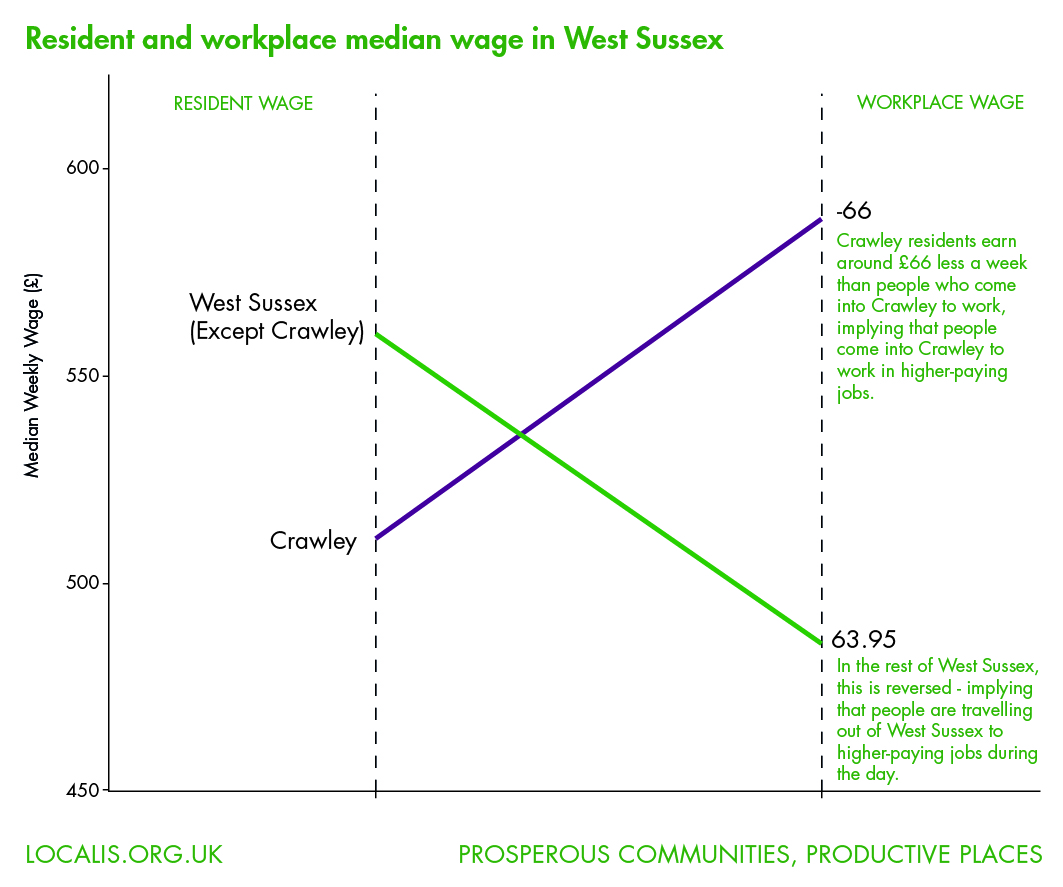Prosperous Communities, Productive Places

Productive businesses need prosperous communities to thrive and grow – prosperous communities need productive and profitable businesses. This report argues the relationship is symbiotic. However, the local economic landscape has changed and the relationship between major business and “place” must now be renewed if local industrial strategies are to deliver local economic success. Recommending that new, local productivity deals should be forged, the report argues that West Sussex and Gatwick Airport now have a unique opportunity to pioneer this approach.
At the heart of local prosperity are Local Economic Anchors – an area’s major employers or wealth generators. Built around shared objectives and outcomes, local productivity deals will form a new social contract with business, both building place prosperity and supporting business productivity. The report examines this concept from both sides:
- Building place prosperity
- Supporting business productivity
Bringing these together, the report argues a new strategic relationship should be put in place through productivity deals to establish a new way of working. It considers the need to enhance the role of strategic authorities, a new approach to Corporate Social Responsibility linked more closely to Local Industrial Strategy and the role of “responsible business”. Deals would be based around a balanced scorecard of what business can do for place and what place can do for business to build sustainable and prosperous communities.
Download the Executive Summary
Download the Recommendations
Download Appendix One: Airports as Local Economic Anchors
Download Appendix Two: Health and Social Mobility in West Sussex
You can also download the charts and infographics from the report as standalone images.
Key Points
Building place prosperity
The report first considers actions that LEAs can take to build the drivers of place prosperity: local business, local people and local places. This includes setting the standard for good jobs, developing a local skills supply chain, supporting local housing as investors, employers or property holders and a commitment to local investment. It considers what happens when an anchor leaves – illustrating the wider social impact major employers have – and the mechanisms of business support.

Supporting business productivity
Taking each of the Industrial Strategy’s foundations of productivity – ideas and innovation, people and skills, business environment, infrastructure and place – the report then considers opportunities for place-based support. This includes coordinating the local public sector innovation offer to anchors and suppliers, supporting access to data, markets and finance, skills devolution, supply chain development and planning spatially for growth.
Making it happen: the productivity deal
Bringing these together, the report argues a new strategic relationship should be put in place through productivity deals to establish a new way of working. It considers the need to enhance the role of strategic authorities, a new approach to Corporate Social Responsibility (CSR) linked more closely to Local Industrial Strategy (LIS) and the role of “responsible business”. Deals would be based around a balanced scorecard of what business can do for place and what place can do for business to build sustainable and prosperous communities.
Project kindly supported by

